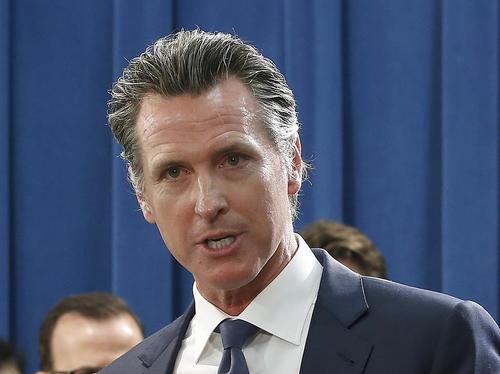Once Acceleron added clinical validation with sotatercept to a promising launch for its first drug, Reblozyl, it became an obvious takeover target. The big question today is why it should have fallen not to Bristol Myers Squibb but to Merck & Co.
It was Bristol, after all, that inherited a key deal with Acceleron – one of the few Celgene transactions to have truly delivered – and this should have given it first-mover M&A advantage. Bristol did feature in early speculation over who would buy Acceleron, but appears to have been unwilling to part with the $11.5bn that Merck today paid up.
Perhaps Acceleron is simply a case of a biotech whose market cap has always stayed ahead of sellside expectations. A year ago Evaluate Vantage had highlighted this disconnect, which might explain why Acceleron had not fallen prey to a takeover until now.
As investment cases go, Acceleron’s was pretty simple. The group was focused on TGF-β superfamily biology, with three assets that targeted it in slightly different ways: Reblozyl, approved for anaemia in beta-thalassaemia and myelodysplastic syndromes (MDS); sotatercept, in pivotal development for pulmonary arterial hypertension (PAH); and ACE-1334, an early project that did not feature in sellside models.
A legacy Celgene deal concerned Reblozyl and sotatercept, resulting in Bristol owing Acceleron a low to mid-20% royalty on the former, and Acceleron owing Bristol a low-20% interest on the latter.
However, sellside forecasts never caught up with buyside expectations. Evaluate Pharma consensus suggests NPVs of $7.4bn for Reblozyl – only a fraction of which would accrue to Acceleron – and $1.7bn for sotatercept. Against this Acceleron reached a market cap of $8bn before rumours of a takeover surfaced this month, and the $180 a share Merck agreed today amounts to a valuation of $11.5bn.
Primary justification
Why this disconnect? While Reblozyl does have the potential to be expanded into front-line MDS, something Acceleron and Bristol have said will help turn it into a $4bn brand, Merck’s primary justification for the acquisition is sotatercept.
True, PAH is a crowded market, featuring approved endothelin receptor antagonists (for instance Tracleer and Opsumit), PDE5 inhibitors (Revatio and Adcirca) and prostacyclins (Uptravi and Remodulin). But all these are vasodilators, meaning that they target PAH symptoms, while sotatercept has been designed to hit the disease’s cause.
And phase 2 data have borne out this potential, especially on top of these standards of care, setting up the outcome of the registrational phase 3 Stellar trial in late 2022 as a major catalyst.
Beyond that lie three studies that are key to expanding the sotatercept opportunity beyond analysts’ current forecasts: Hyperion and Zenith, in newly diagnosed and high-risk PAH, and Cadence, in left heart disease. The last has no approved treatments, and could nearly equal the available PAH population.
| What is Merck thinking? Potential Acceleron pipeline scenarios |
|---|
| Project | TGF-β mechanism | 2026e sales ($m)* | NPV ($m)*^ | Status | Upside? |
| Reblozyl (luspatercept) | Activin type IIB receptor fusion protein | 1,671 | 7,421** | Launched for anaemia in beta-thalassaemia and MDS after failure on EPOs | Anaemia in 1st-line MDS vs EPO (Commands trial) |
| Sotatercept | Activin type IIA receptor fusion protein | 489 | 1,920 | Ph3 for class II/III PAH (Stellar trial) | Newly diagnosed intermediate/high-risk class II/III PAH (Hyperion trial) |
| Class III/IV PAH at high risk of mortality (Zenith trial) |
| Left heart disease (Cadence trial) |
| ACE-1334 | TGF-β 1 & 3 ligand trap | 0 | 0 | Ph1/2 for systemic sclerosis with/without interstitial lung disease | Any clinical success |
| *Evaluate Pharma sellside consensus; ^risk-adjusted; **$1,743m accruing to Acceleron. |
One caveat is that basic patents on Reblozyl and sotatercept expire in 2026, though Merck reckons extensions will cover both until 2031, and data exclusivity would protect sotatercept to 2036. As both assets are biologicals they will also be more difficult to copy than small molecules.
Merck also cites its cardiovascular expertise, given that it has rights to Bayer’s PAH drug Adempas and sells Verquvo for heart failure. It also has MK-5475m, an inhaled sCG stimulator (Verquvo’s mechanism), in phase 2/3 for PAH, and one risk is that some of these could cause antitrust issues.
Overall, Acceleron is the latest example of Merck putting to use the cash its Keytruda blockbuster is throwing off, following the acquisitions of Pandion, Peloton and Velosbio. The group told analysts today that Acceleron would provide growth when Keytruda loses patent exclusivity later this decade, though low-cost competition could come even earlier.
While Bristol did not pay up for Acceleron, the prospect of two blockbuster drugs sold by Merck with Bristol getting a royalty, or vice versa, does not seem too bad for either company.
https://www.evaluate.com/vantage/articles/news/deals/merck-co-justifies-paying-acceleron
